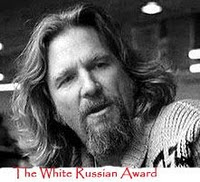Not even sure if that’s a word, but if polyglot means that you speak more than one language, then let us assume, for the sake of this blog, that “monoglot” means that you speak just one.
Exciting, yes?
I was raised in a number of small towns in Minnesota, and I have to admit that as a child I was completely unaware of the possibility that anyone in the U.S. spoke anything other than English. The idea that people conversed in the home, in schools, in a language I couldn’t understand? Astonishing. Please forgive me, but everyone I knew – everyone! – had been in the country for generations. Only fragments of the languages of our ancestors remained, small words and phrases here and there.
It wasn’t until my father brought me to a new school for seventh grade that I even thought about other languages. “Language Spoken at Home Other Than English” was one of the lines on the registration form. My father, the King of Smart Alecks, filled in “Obscene”. A complete lie, but it looked good on paper.
Seventh grade was also the year we could start taking a language other than our own. “Sign up for French,” my father insisted. “The smartest people speak French.”
And so it was that I took four years of French. And zut alors, it’s made me much better at menus and crossword puzzles but from a conversational aspect, I’ve only run into one French person in Minnesota, a woman. Her husband had pulled over during a blizzard to help me out of the ditch that I had thoughtlessly plowed into just moments before. She spoke no English; and I, flustered and shaking, told her in high school French my name, my age, and that her breakfast would arrive in just a few moments. She told me my French was perfect. We had a good laugh.
I should’ve taken Spanish, really. No offense to the French, but there are, as far as I can tell, no recently emigrated French people on the bus, while there are plenty of Mexicans and Suramericanos.
Unfortunately, the only Spanish I can reliably come up with is a sentence that I hear over and over on the telephone help lines: Para español, marco dos – for Spanish, press “2”.
Over the years, it’s embarrassed me that I’ve no fluency in any language but my own, and so I’ve made a habit of trying to pick up phrases where I can.
My abilities in German range from “Vielen Dank für Deine Hilfe” (thanks for your help) to “Dieses ist Gutes Bier” (this is good beer) to “Ich habe keinen Hut”; which, of course, means “I have no hat”. You’d be surprised how often this comes in handy. I say it every chance I get.
I can ask for the ashtray, a drink, and for you to sit here next to me in Russian. I can’t spell any of it, but that’s not important. What’s important is how often that’s all the Russian you need.
Hardly a citizen of the world, am I? If I haven’t had a number of drinks with someone who speaks something other than English or been inundated with it over automated 1-800 numbers asking me to press “1” for English, “2” for Spanish, et cetera, then I am essentially mute.
There is an old saying in Czech (according to the old Czechs): Learn a new language and gain a new soul.
Unfortunately, I can only say that in English.
Both Sides Now, by the Fire
2 days ago
































No comments:
Post a Comment